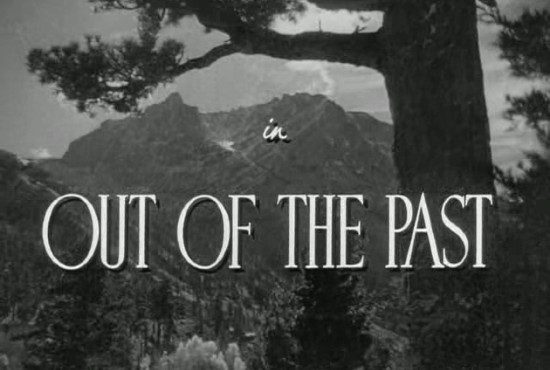• I was thinking more about that “woke C.S. Lewis” passage from his essay on the Psalms and about how it reminded me of the ending of Orwell’s essay “Marrakech.”
Orwell was thinking about the same thing Lewis described as “the White Man’s offenses” and, watching a colonial army of African soldiers marching by, writes: “But there is one thought which every white man (and in this connection it doesn’t matter twopence if he calls himself a Socialist) thinks when he sees a black army marching past. ‘How much longer can we go on kidding these people? How long before they tum their guns in the other direction?’”
Orwell understood that every oppressor fears retaliation because they view it as the only rational, inevitable response to their own misdeeds. Lewis, being Lewis, was less worried that the oppressed would “turn their guns in the other direction,” but that they might be tempted by the soul-destroying sin of vengeful wrath. A conversation between those two men on that subject might have been fascinating.
I don’t think Orwell and Lewis ever met, although they did review one another’s novels. Orwell liked That Hideous Strength, apart from the supernatural bits. Lewis preferred Animal Farm to 1984 because it was funnier (and I’m sure the talking animals appealed to him).
Anyway, I suppose if the two writers had ever met, they probably would’ve just ended up talking about the one thing they both firmly agreed on: boarding school was terrible.
• David Bentley Hart says “Everything you know about the Gospel of Paul is likely wrong.”
Hart’s discussion of Paul’s cosmology — and how utterly alien it is to ours — is fascinating. I think it requires him to qualify his headline here to something more like “Everything you know about the Gospel of Paul is likely wrong … unless you’re Walter Wink.”
 But here’s the bit that I think is most important and, sadly, most timely:
But here’s the bit that I think is most important and, sadly, most timely:
A certain long history of misreadings – especially of the Letter to the Romans – has created an impression of Paul’s theological concerns so entirely alien to his conceptual world that the real Paul occupies scarcely any place at all in Christian memory. It is true that he addresses issues of ‘righteousness’ or ‘justice’, and asserts that this is available to us only through the virtue of pistis – ‘faith’ or ‘trust’ or even ‘fidelity’. But for Paul, pistis largely consists in works of obedience to God and love of others. The only erga, ‘works’, which he is anxious to claim make no contribution to personal sanctity, are certain ‘ritual observances’ of the Law of Moses, such as circumcision or kosher dietary laws. This, though, means that the separation between Jews and gentiles has been annulled in Christ, opening salvation to all peoples; it does not mean (as Paul fears some might imagine) that God has abandoned his covenant with Israel.
This. Paul’s argument was that God’s salvation was now for everyone, even including unclean gentiles, and no longer exclusively for Israel. It took a few centuries, and an emperor, to flip that on its head, inverting and perverting it to an argument that God’s salvation was now only for gentiles and now somehow excluded Israel.
I cannot personally vouch for Hart’s arguments from the original Greek of Paul’s letters, but I can point out that late in the book of Acts, in chapter 21, we read that Paul was welcomed into the home of Philip the Evangelist. Philip was the first of the disciples and the deacons they appointed to understand “salvation to all peoples” meant all peoples. That everybody means everybody. Much to the consternation of the disciples — who took another several chapters to understand what Philip learned at Pentecost — Philip sprinted off to Samaria and the ends of the earth, baptizing Ethiopian eunuchs and Samaritan magicians and anybody else he could find on the way.
That little passage telling us about Paul going to stay at his house also includes this later-in-life update on Philip: “He had four unmarried daughters who had the gift of prophecy.” That’s a literary call-back to Pentecost itself, when Peter read from the prophet Joel: “I will pour out my Spirit upon all flesh, and … your daughters shall prophesy.” That’s the author of Acts telling us that Philip got it right. All flesh means all flesh. That’s the gospel, according to Paul. And according to Philip.
• Lauren Hough, “I Was A Cable Guy. I Saw The Worst Of America.”
My basement is a disgraceful mess. I was apologizing for the state of it to a plumber who had to work down there and he looked around as if noticing the mess for the first time. “I could tell you stories,” he said. “This?” — he gave a little shrug — “This isn’t a story.”
Lauren Hough has stories. Wow does she have stories. These include tales of cat hoarders, Russian mobsters, sex workers, “Fox News rage addicts,” and several members of the Cheney family. Many of these offer, as Huffpo’s teaser says, “a glimpse of the suburban grotesque.” Others offer more hopeful glimpses of humanity. And Hough is a compelling writer.
This piece would not be a good recruiting tool for the cable company. Mostly what comes through is the way that company’s penny pinching, profit chasing, and money grubbing frames and ruins the interactions between their clients and their “cable guys.” This seems like it should be a great job — showing up at people’s homes to repair a broken thing they rely on, restoring normal functioning to their grateful households. But it’s not like that. At all. It’s deliberately not allowed to be like that, and if you think about that for a bit you’ll realize Hough’s piece is about a lot more than cable repair techs.
• Charles Kuffner has an “Arlington Nun Mutiny update.” The Vatican is getting involved, but the situation remains fiercely unsettled. “I very much hope there will be a multi-part prestige podcast about this whole saga once it has concluded,” he says. I can’t wait to hear it.
• “How South of the Border Keeps Going After All These Years”
Emily Cataneo’s piece for The Assembly gets into all the questions you’ve probably asked if you’ve ever driven past or stopped at the famous, kitschy roadside attraction off of I-95 just over the border into South Carolina.
I’ve driven past there a few times, but never stopped — didn’t need the fireworks. But I’d never thought much about its role in the local economy or how, as Cataneo says, it’s a place where everybody either works a summer job in high school or has friends who do. And now I’m thinking what a terrific setting that would be for whatever the 2024 version of an ’80s Jojn Cusack movie or CW series would be.
• The title of this post comes from the Mighty Lemon Drops, because I just stumbled across this clip of them performing this on a BBC children’s show in 1988. I now have a lot of questions about BBC children’s programming in the late ’80s.

















